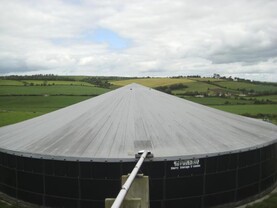The confirmation last week that there will be no transfer of CAP money from Pillar I (direct payments) to Pillar II (rural development) came as a surprise. Most farm organisations had resigned themselves to some money being moved across. A few smaller groups had even been more proactive, seeing rural development as a way of targeting support at their sector. The general impression was that any decision to move CAP money was for DARD Minister, Michelle O’Neill. The efforts of farming leaders had been concentrated on meetings with DARD officials, and there was little criticism when the Minister announced a 7% transfer from Pillar I to II.
But, just as everything seemed done and dusted, the DUP decided to challenge the decision.
They won the case after NI’s top judge, Lord Chief Justice Sir Declan Morgan, ruled that the decision on transferring CAP money was one for the NI Executive, and not an individual minister.
Given that the Executive couldn’t then agree, the default position of zero transfer was taken. It highlighted the unique system of government in NI. It also puts down a marker for other major CAP related decisions – namely the rate of transition to flat rate payments and the possibility of a two-region CAP model. These issues may need to be agreed at high levels in government.
Whether you see the DUP challenge to the 7% Pillar transfer as a stunt or as championing the views of the farming community in NI probably depends on your political point of view.
But, whatever the motivation, it looks a smart move a few months before a European election.
For those who doubt, read through the hundreds of pages of consultation responses on the next Rural Development Programme currently on the DARD website.
There you will see that the weight of opinion of the farming community is firmly against any movement of money from Pillar I to II.






 This is a subscriber-only article
This is a subscriber-only article










SHARING OPTIONS: